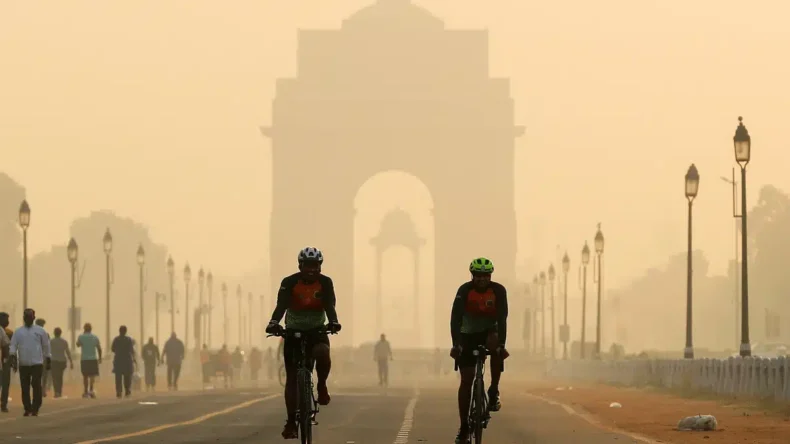Addressing a press conference on October 30, 2022, Delhi Environment Minister, Gopal Rai said the Delhi government has set up 586 teams to ensure strict implementation of the ban on construction and demolition activities in the capital, keeping in view of worsening air quality in Delhi.
Gopal Rai said that the city government has resolved about 90 percent of the air pollution-related complaints that it received through the Green Delhi mobile application since October 1 and its effective policies resulted in the cleanest Diwali in seven years.
Chief Minister Arvind Kejriwal had recently launched a mobile application in October 2020 through which citizens could bring pollution-causing activities to the government’s notice.

Acknowledging experts point of view, he also noted that wind speed and direction would become unfavorable from November 1 and might push the air quality index into the ‘severe’ category.
Implementing a ban on construction and demolition activities in tandem with official meeting proposals, he said that the government has prepared a strong monitoring system to ensure compliance of the directions by setting up 586 teams comprising officials of different departments.
Emissions, chemical fumes, untreated wastage, and stubble burning in neighboring areas contribute to the deteriorating condition of landscapes. The Central Pollution Control Board had earlier warned that the air quality of Delhi is likely to remain largely in the ‘severe’ to ‘very poor’ category for the next few days.
The share of stubble-burning emissions in Delhi’s total PM2.5 was 21% on Saturday, according to the central government-run monitoring agency SAFAR (System of Air Quality and Weather Forecasting and Research)
The ban on construction activities is a part of a list of actions under ‘Stage III’ of the Graded Response Action Plan (GRAP), which are assessed as a set of emergency measures taken to reduce the effects of air pollution.
Under stage III of GRAP, the Commission for Air Quality Management (CAQM) has directed the authorities in the NCR to implement curbs, except for major ongoing projects and non-polluting activities such as plumbing, carpentry, interior decoration and electrical works. A total of 6,866 sites were inspected till October 24 out of which violations were reported at 276 and 253 challans issued.
However, the restrictions will not be applicable to essential projects like national security, defence, railways and metro rail.
Read More: https://tdznkwjt9mxt6p1p8657.cleaver.live/indias-steel-man-jamshed-j-irani-is-no-more-read/
Such a ban on construction and demolition activities incorporates ceasing of earthwork for excavation, boring, and drilling; fabrication and welding operations; loading and unloading of construction material; transfer of raw material, including fly ash, either manually or through conveyor belts and vehicular movement on unpaved roads.
It also bans some infrastructural work like the operation of batching plants; laying of sewer lines, waterline, drainage work and electric cabling through open trench system; cutting and fixing of tiles, stones, and other flooring materials; grinding activities; piling work; waterproofing work; road construction and repair works, including paving of sidewalks, pathways and central verges among others.
Promoting cleaner fuels, The NCR authorities have also been asked to close down industries not running on approved fuels in industrial areas having PNG infrastructure and supply. In industrial areas not having PNG infrastructure and supply, industries not using approved fuels can operate but only for five days a week.
Moreover, highlighting the issues of fuel-related problems, Gopal also asked the Uttar Pradesh government to use CNG buses in the national capital region, saying diesel-run buses have an important role to play in high pollution levels at the Delhi-UP border.
Rai also cited the example of Anand Vihar and Vivek Vihar which have been reporting high pollution levels and are advised to follow the dust pollution control norms.

To help reduce the ill effects of air pollution, Rai also said the government will deploy fire tenders to sprinkle water at severe pollution hotspots.
There are 521 water sprinklers, 223 anti-smog guns, and 150 mobile anti-smog guns that have been deployed at present with the help of the Municipal Corporation in Delhi, he said.













